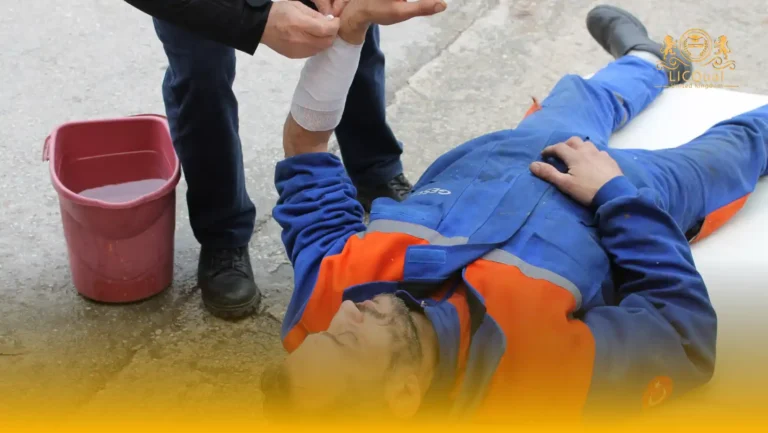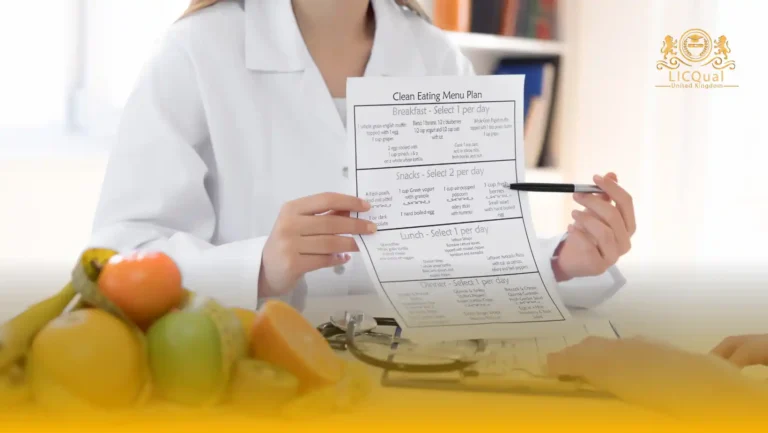The LICQual Level 3 Diploma in Travel Medicine (Dip TM) is a specialised qualification designed for healthcare professionals who wish to advance their expertise in the field of travel medicine. This qualification is intended for learners who already have a foundational knowledge in healthcare and wish to enhance their career prospects, expand their clinical knowledge, and strengthen their Continuing Professional Development (CPD).
This diploma provides comprehensive coverage of travel medicine, including the prevention and management of travel-related illnesses, vaccination protocols, risk assessment, and health advice for international travellers. Learners will gain in-depth understanding of infectious diseases, tropical medicine considerations, and the impact of environmental and geographical factors on traveller health. The course emphasises evidence-based practice, equipping learners to deliver safe and effective care to diverse populations.
To ensure high-quality training and learner success, centres delivering this qualification must have competent and qualified staff with professional experience in travel medicine or related healthcare fields. Centres should also provide access to comprehensive learning materials, clinical resources, and practical tools to support both theoretical study and applied learning.
By completing the LICQual Level 3 Diploma in Travel Medicine, learners enhance their professional credibility and are prepared to take on advanced roles in clinics, travel health advisory services, and healthcare institutions. This qualification is ideal for committed healthcare professionals who wish to make a meaningful impact on traveller health, deliver expert advice, and stay at the forefront of this evolving field.
Course Overview
Qualification Title
LICQual Level 3 Diploma in Travel Medicine (Dip TM)
Total Units
6
Total Credits
60
GLH
240
Qualification #
LICQ2200906
Qualification Specification
To enroll in the LICQual Level 3 Diploma in Travel Medicine (Dip TM) , applicants must meet the following criteria:
|
Qualification# |
Unit Title |
Credits |
GLH |
|---|---|---|---|
|
LICQ2200906-1 |
Introduction to Travel Medicine |
10 |
40 |
|
LICQ2200906-2 |
Infectious Diseases in Travellers |
10 |
40 |
|
LICQ2200906-3 |
Vaccinations and Immunisation Protocols |
10 |
40 |
|
LICQ2200906-4 |
Risk Assessment and Pre-Travel Health Advice |
10 |
40 |
|
LICQ2200906-5 |
Post-Travel Health Management |
10 |
40 |
|
LICQ2200906-6 |
Professional Practice and CPD in Travel Medicine |
10 |
40 |
By the end of this course, learners will be able to:
Unit 1: Introduction to Travel Medicine
By the end of this unit, learners will be able to:
- Explain the fundamental principles and scope of travel medicine.
- Describe the role and responsibilities of travel health practitioners.
- Analyse the impact of global travel on individual and public health.
- Identify key challenges and considerations in providing travel-related healthcare.
Unit 2: Infectious Diseases in Travellers
By the end of this unit, learners will be able to:
- Identify common travel-related infections, including bacterial, viral, parasitic, and vector-borne diseases.
- Explain modes of transmission and risk factors for travel-associated illnesses.
- Evaluate prevention strategies and infection control measures for travellers.
- Apply evidence-based approaches to the management of travel-related infections.
Unit 3: Vaccinations and Immunisation Protocols
By the end of this unit, learners will be able to:
- Explain the importance of vaccinations in travel medicine.
- Describe recommended immunisation schedules for different travel destinations.
- Identify contraindications and potential adverse effects of vaccines.
- Develop strategies to ensure vaccine efficacy and traveller safety.
Unit 4: Risk Assessment and Pre-Travel Health Advice
By the end of this unit, learners will be able to:
- Conduct comprehensive pre-travel risk assessments based on destination, traveller health, and planned activities.
- Provide evidence-based health advice tailored to individual travellers.
- Identify strategies to prevent travel-related health risks.
- Demonstrate effective communication skills for educating travellers about potential hazards.
Unit 5: Post-Travel Health Management
By the end of this unit, learners will be able to:
- Recognise signs and symptoms of common post-travel illnesses.
- Apply diagnostic methods to identify travel-related infections and complications.
- Develop management plans for post-travel patients based on best practice guidelines.
- Analyse emerging infections and public health implications related to international travel.
Unit 6: Professional Practice and CPD in Travel Medicine
By the end of this unit, learners will be able to:
- Demonstrate professional and ethical responsibilities in travel medicine practice.
- Apply principles of clinical governance and multidisciplinary teamwork.
- Develop a personal Continuing Professional Development (CPD) plan to enhance knowledge and skills.
- Reflect on practice to identify areas for improvement and professional growth.
The LICQual Level 3 Diploma in Travel Medicine (Dip TM) is designed for healthcare professionals, medical graduates, and allied practitioners who want to specialize in travel health, infectious disease prevention, and global healthcare delivery. This CPD-accredited diploma is ideal for those seeking international recognition, career advancement, and flexible online training that equips them with evidence-based knowledge in vaccination protocols, tropical medicine, and travel risk management.
1. Medical Doctors and Physicians
- Strengthen diagnostic and advisory skills in travel-related health risks
- Gain advanced knowledge of tropical medicine and infectious diseases
- Apply evidence-based approaches to vaccination and prophylaxis
- Improve patient outcomes with specialized travel health training
- Enhance professional credibility with an accredited diploma
2. Nurses and Clinical Practitioners
- Develop expertise in pre-travel consultations and risk assessments
- Learn patient-centered care strategies for travelers with chronic conditions
- Expand clinical scope with a Diploma in Travel Medicine (Dip TM)
- Access CPD-accredited training for career progression
- Gain confidence in supporting multidisciplinary travel health teams
3. Pharmacists and Allied Health Professionals
- Provide expert advice on travel-related medications and vaccines
- Understand the role of pharmacists in global health and prevention
- Support patients with long-term conditions traveling abroad
- Strengthen interprofessional collaboration in travel health clinics
- Add a specialized qualification to enhance career opportunities
4. Medical Graduates and Postgraduate Students
- Build a strong foundation in travel medicine for future specialization
- Gain a competitive edge in postgraduate medical applications
- Access flexible online learning while continuing clinical rotations
- Learn from expert-led modules aligned with international standards
- Earn a diploma that strengthens both academic and professional profiles
5. Public Health Specialists and Policy Makers
- Understand the global impact of travel-related diseases on healthcare systems
- Gain insights into prevention, screening, and outbreak management
- Learn about population-level interventions for traveler safety
- Strengthen leadership skills in public health policy and planning
- Contribute to international health initiatives and research
6. International Healthcare Professionals
- Designed for global learners seeking UK-accredited qualifications
- Access flexible online study from anywhere in the world
- Gain recognition with an internationally respected diploma
- Learn best practices in travel medicine aligned with global standards
- Enhance employability in hospitals, clinics, and NGOs worldwide
7. Professionals Seeking Career Advancement
- Ideal for those aiming to specialize in travel and tropical medicine
- Boost career growth with a niche healthcare qualification
- Gain recognition for advanced expertise in travel health and prevention
- Open pathways to leadership, teaching, and research roles
- Strengthen your CV with a Diploma in Travel Medicine (Dip TM)
To deliver the LICQual Level 3 Diploma in Travel Medicine effectively, centres must meet specific standards to ensure high-quality training, practical learning, and learner success. The requirements include:
- Qualified and Competent Staff: Centres must employ instructors with relevant qualifications, clinical experience in travel medicine or related healthcare fields, and expertise in delivering Level 3 healthcare programmes. Staff should be able to provide both theoretical instruction and practical guidance.
- Comprehensive Learning Resources: Centres should provide up-to-date textbooks, digital learning materials, case studies, and access to current research in travel medicine to support effective learning.
- Practical Facilities and Equipment: Centres must have access to clinical facilities, vaccination equipment, and other resources necessary for practical training and applied learning in travel medicine.
- Safe and Accessible Learning Environment: Training areas must comply with health and safety standards, offering a secure, clean, and fully accessible environment for all learners.
- Assessment and Quality Assurance Processes: Centres should implement robust assessment strategies, feedback mechanisms, and quality assurance systems to maintain high academic and professional standards.
- Support for CPD and Professional Development: Centres must encourage learners to engage in Continuing Professional Development through workshops, seminars, and additional learning opportunities relevant to travel medicine.
- Administrative and Logistical Support: Centres must provide efficient enrolment, record-keeping, and learner support services to guide learners throughout their course journey.
Meeting these centre requirements ensures learners receive a high-quality, structured, and professionally recognised Level 3 qualification, equipping them with the knowledge, skills, and confidence to provide expert care in travel medicine and advance their healthcare careers.
Assessment and Verification
All units within this qualification are subject to internal assessment by the approved centre and external verification by LICQual. The qualification follows a criterion-referenced assessment approach, ensuring that learners meet all specified learning outcomes.
To achieve a ‘Pass’ in any unit, learners must provide valid, sufficient, and authentic evidence demonstrating their attainment of all learning outcomes and compliance with the prescribed assessment criteria. The Assessor is responsible for evaluating the evidence and determining whether the learner has successfully met the required standards.
Assessors must maintain a clear and comprehensive audit trail, documenting the basis for their assessment decisions to ensure transparency, consistency, and compliance with quality assurance requirements.







